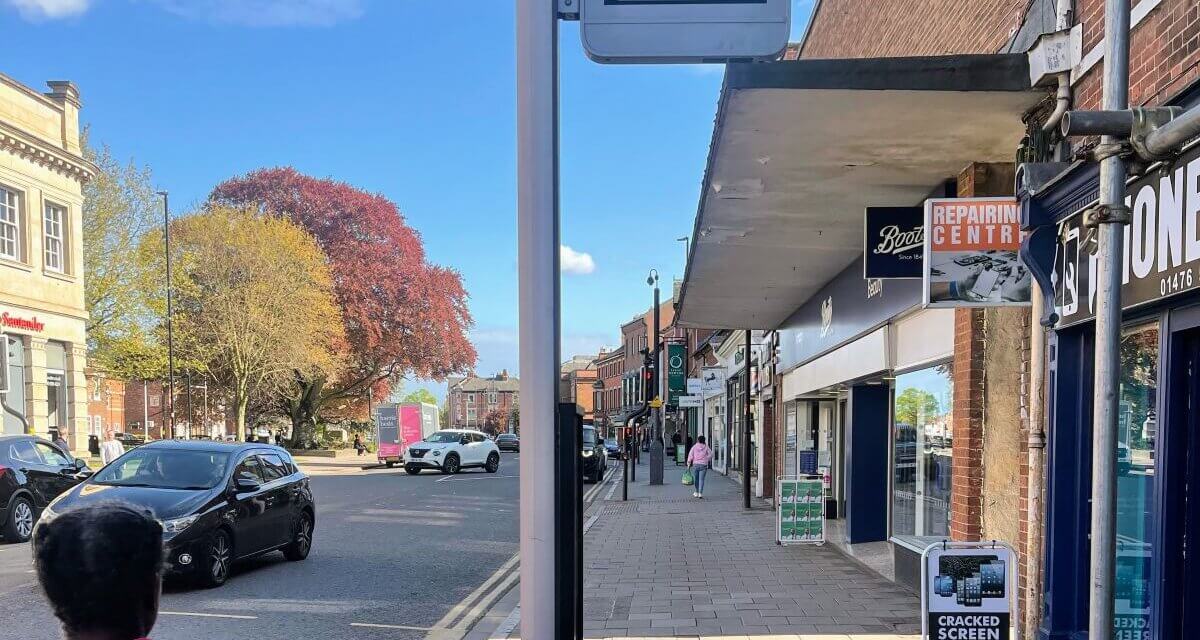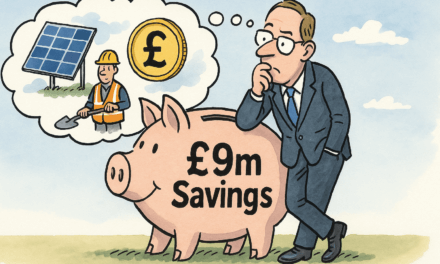Lincolnshire’s high streets have always been more than places to shop. They’re the heart of our communities — where you meet neighbours, pick up the paper, enjoy a pint, and feel the pulse of local life. But over the past few years, these vital spaces have been under enormous strain. Rising costs, changing habits, and economic uncertainty have pushed many small businesses to the brink.
That’s why the Conservatives’ new plan to abolish business rates for retail, hospitality and leisure businesses is one of the most essential pro-local, pro-growth measures in a generation.
Lifting the Burden on Local Businesses
Under our proposal, announced this October, 250,000 high street shops, pubs, and cafés across the UK — including thousands right here in Lincolnshire — will be freed entirely from business rates.
For too long, business rates have acted as a penalty for community participation. This tax disproportionately affects those who choose to maintain a physical presence in our towns. The new 100% permanent relief, capped at £110,000 per business, will remove that burden altogether for the vast majority of small and medium-sized high street firms.
This will mean real, tangible savings for local employers. In towns like Grantham, Boston, and Skegness, family-run shops, barbers, bakers and local pubs could save thousands of pounds a year — money they can reinvest in staff, refurbishments, and new services.
And in places like Stamford, where independent shops have already helped earn the title of the UK’s best high street, that relief will help sustain the vibrant mix of small businesses that make the area special.
A Contrast in Priorities
Labour’s first Budget hit Lincolnshire’s high streets hard.
They slashed business rates relief from 75% to 40%, forcing the average pub’s bill up from £4,000 to nearly £10,000. They raised National Insurance, increasing the cost of employing staff. Since then, over 1,100 pubs and restaurants have closed nationally, with 89,000 hospitality workers losing their jobs.
They promised to “reform” business rates — but what we’ve seen instead is confusion, delay and higher bills. And for the small shop owner on Lincoln’s Steep Hill or the café owner in Spalding, those extra costs can be the difference between staying open or shutting up shop for good.
By contrast, our plan is clear, costed and deliverable.
We’ll pay for it through a £47 billion savings plan — cutting waste, slimming down the civil service, and reforming welfare — not through borrowing or higher taxes. That’s the Conservative way: backing business while living within our means.
Reviving the High Street Spirit
Lincolnshire’s high streets have shown resilience despite national challenges.
- In Scunthorpe, small traders are filling empty units as the town centre diversifies.
- In Spalding, a £20 million regeneration plan is underway to revive the market square and bring new life to the retail core.
- In Louth and Gainsborough, independent shops and family-run cafés continue to thrive, proving that local enterprise still beats central bureaucracy every time.
By cutting business rates, we’re giving these local success stories the breathing space they need to grow. This is how we help turn boarded-up shopfronts into bustling businesses again — through practical, targeted tax relief, not endless bureaucracy or empty slogans.
Standing Up for Lincolnshire’s Economy
Nearly one in five jobs in Greater Lincolnshire depends on retail, hospitality or leisure.
If we want to protect those livelihoods — and the pride, community and opportunity they create — we must back the people who make our towns work.
This policy isn’t just about economics. It’s about fairness.
It’s about saying that if you run a pub in Horncastle, a bakery in Bourne, or a small shop in Market Rasen, your effort deserves recognition, not punishment.
It’s about putting Lincolnshire first — helping our high streets not just survive, but thrive again.






Recent Comments